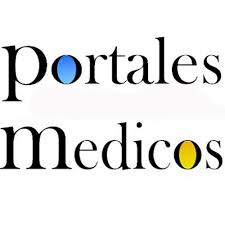Vacunas autológicas en cáncer urológico: innovaciones, progresos y retos de la inmunoterapia personalizada
Autologous vaccines in urological cancer: innovations, progress, and challenges of personalized immunotherapy
Resumen
RESUMEN
Las vacunas son medicamentos que ayudan al cuerpo a luchar contra las enfermedades y a entrenar al sistema inmunológico para identificar y eliminar células dañinas; en este contexto, se tienen vacunas contra el cáncer (VC), que brindan un nivel similar de protección, como contra los virus; ofreciendo enfoques terapéuticos potentes y clínicamente viables para reducir la carga tumoral, erradicar las células cancerosas residuales y prevenir las recaídas. En forma particular, en el desarrollo de las VC, están las vacunas autólogas que son tratamientos inmunoterapéuticos personalizados que se basan en las propias células del paciente para estimular una respuesta inmunitaria. Para los tumores urológicos tipo cáncer de próstata, se cuenta con una vacuna autológica que se combina con medicamentos antihormonales y citostáticos. Existen otras vacunas contra neoplasias urológicas; por ello, la necesidad de actualizar dicha posibilidad terapéutica. El objetivo de esta revisión narrativa es presentar los avances en los últimos cinco años (2020-2024) en el desarrollo y aplicación de vacunas autológicas para el cáncer urológico. Se encontraron resultados prometedores, donde destaca la existencia de una vacuna autológica aprobada por la FDA para el tratamiento del cáncer de próstata metastásico resistente a la castración; no obstante, aún queda mucho por aprender sobre los mecanismos de acción de estos agentes y los regímenes óptimos de administración. Se concluye estableciendo que la terapia con vacunas autológicas se está investigando tanto para el cáncer de próstata, el cáncer urotelial y el cáncer de células renales en ensayos clínicos.
ABSTRACT
Vaccines are medications that help the body fight disease and train the immune system to identify and eliminate harmful cells. In this context, there are cancer vaccines (CVs), which provide a similar level of protection as those against viruses, offering potent and clinically viable therapeutic approaches to reduce tumor burden, eradicate residual cancer cells, and prevent relapse. Particularly relevant to the development of CVs are autologous vaccines, which are personalized immunotherapeutic treatments based on the patient's own cells to stimulate an immune response. For urological tumors such as prostate cancer, there is an autologous vaccine that is combined with antihormonal and cytotoxic drugs. There are other vaccines against urological neoplasms; therefore, the need to update this therapeutic option. The objective of this narrative review is to present the advances made over the last five years (2020–2024) in the development and application of autologous vaccines for urological cancer. Promising results were found, notably the existence of an FDA-approved autologous vaccine for the treatment of metastatic castration-resistant prostate cancer; however, much remains to be learned about the mechanisms of action of these agents and optimal administration regimens. It concludes by stating that autologous vaccine therapy is being investigated for prostate cancer, urothelial cancer, and renal cell cancer in clinical trials.
Recibido: 06-04-2025
Aceptado: 08-05-2025
Publicado: 04-07-2025
Palabras clave
Texto completo:
PDFReferencias
Albutti, A. (2024). An integrated approach to develop a potent vaccine candidate construct against prostate cancer by utilizing machine learning and bioinformatics. Cancer Reports, 7(12), 1-17. https://doi.org/10.1002/cnr2.70079.
Aweys, H., Lewis, D., Sheriff, M., Rabbani, R. D., Lapitan, P., Sanchez, E., Papadopoulos, V., Ghose, & A., Boussios, S. (2023). Renal cell cancer–insights in drug resistance mechanisms. Anticancer Research, 43(11), 4781-4792. DOI: 10.21873/anticanres.16675.
Bueno, A. N., Stein, M. N., & Runcie, K. (2024). Adjuvant therapy in renal cell carcinoma (RCC): progress, at last. Translational Cancer Research, 13(11), 6448-6462. DOI: 10.21037/tcr-23-2247.
Duarte C., M. A., Carballo O., J. M., De Gouveia, Y. M., García, A., Ruiz, D., Gledhill, T., González-Marcano, E., & Convit, A. F. (2021). Toxicity evaluation of ConvitVax breast cancer immunotherapy. Scientific Reports, 11(1), 1-10. DOI: 10.1038/s41598-021-91995-6.
Giudice, G. C., & Sonpavde, G. P. (2024). Vaccine approaches to treat urothelial cancer. Human Vaccines & Immunotherapeutics, 20(1), 1-21. DOI: 10.1080/21645515.2024.2379086
Gu, Q., Qi, A., Wang, N., Zhou, Z., & Zhou, X. (2024). Unlocking immunity: Innovative prostate cancer vaccine strategies. International Immunopharmacology, 142, 113137. DOI: 10.1016/j.intimp.2024.113137.
He, J., Wu, J., Li, Z., Zhao, Z., Qiu, L., Zhu, X., Liu, Z., Xia, H., Hong, P., Yang, J., Ni, L. & Lu, J. (2024). Immunotherapy vaccines for prostate cancer treatment. Cancer Medicine, 13(20), 1-13. DOI: 10.1002/cam4.70294.
Lasek, W., & Zapała, Ł. (2021). Therapeutic metastatic prostate cancer vaccines: Lessons learnt from urologic oncology. Central European Journal of Urology, 74(3), 300-307. DOI: 10.5173/ceju.2021.0094.
Maiorano, B. A., Schinzari, G., Ciardiello, D., Rodriquenz, M. G., Cisternino, A., Tortora, G., & Maiello, E. (2021). Cancer vaccines for genitourinary tumors: recent progresses and future possibilities. Vaccines, 9(6), 1-19. DOI: 10.3390/vaccines9060623.
Muhammad, A. S. (2021). Targeted immunotherapy in urological malignancies. Highlights on Medicine and Medical Research, 13, 166-177. DOI: 10.9734/bpi/hmmr/v13/8583D.
Necchi, A., Faltas, B. M., Slovin, S. F., Meeks, J. J., Pal, S. K., Schwartz, L. H., Huang, R., Li, R., Manley, B., Chahoud, J., Ross, J. & Spiess, P. E. (2023). Immunotherapy in the treatment of localized genitourinary cancers. JAMA oncology, 9(10), 1447-1454. DOI:10.1001/jamaoncol.2023.2174.
Noguchi, M., Fujimoto, K., Arai, G., Uemura, H., Hashine, K., Matsumoto, H., Kohjimoto, Y., Nakatsu, H., Takenaka, A., Fujisawa, M., Uemura, H., Naito, S., Egawa S., Fujimoto, H., Hinotsu, S., & Itoh, K. (2021). A randomized phase III trial of personalized peptide vaccination for castration resistant prostate cancer progressing after docetaxel. Oncology reports, 45(1), 159-168. DOI: 10.3892/or.2020.7847.
Parsons, J. K., Pinto, P. A., Pavlovich, C. P., Uchio, E., Nguyen, M. N., Kim, H. L., Gulley, J., Sater, H., Jamieson, C., Hsu, C., Wojtowicz, M., House, M., Schlom, J., Donahue, R., Dahut, W., Madan, R., Bailey, S., Centuori, Bauman, J., Parnes, H., & Chow, H. (2023). A phase 2, double-blind, randomized controlled trial of PROSTVAC in prostate cancer patients on active surveillance. European urology focus, 9(3), 447-454. DOI: 10.1002/cnr2.70079.
Rastogi, I., Muralidhar, A., & McNeel, D. G. (2023). Vaccines as treatments for prostate cancer. Nature Reviews Urology, 20(9), 544-559. DOI: 10.1038/s41585-023-00739-w.
Ratnakar, N. C., Prajapati, B. R., & Prajapati, B. G. (2025). Autologous vaccines for prostate and pancreatic cancer. In Cancer Vaccination and Challenges (pp. 211-234). Apple Academic Press. DOI: 10.1201/9781003503071-8.
Schindler, N. R., & Braun, D. A. (2023). Antigenic targets in clear cell renal cell carcinoma. Kidney Cancer, 7(1), 81-91. DOI: 10.3233/KCA-230006.
Schmidinger M, Huebner-Resch I. Adjuvant personalized cancer vaccine: is this the end of metastatic kidney cancer. Nat Rev Urol, 2025. doi: 10.1038/s41585-025-01018-6. Epub ahead of print.
Sutherland, S. I., Ju, X., Horvath, L. G., & Clark, G. J. (2021). Moving on from sipuleucel-T: new dendritic cell vaccine strategies for prostate cancer. Frontiers in immunology, 12, 1-19. DOI: 10.3389/fimmu.2021.641307.
Tryggestad, A. M., Axcrona, K., Axcrona, U., Bigalke, I., Brennhovd, B., Inderberg, E. M., Hønnåshagen, T., Skoge, L., Solum, G., Saebøe-Larssen, S., Josefsen, D., Olaussen, R., Aamdal, S., Skotheim, R., Myklebust, T., Schendel, D., Lilleby, W., Dueland, S., Kvalheim, G., & Kvalheim, G. (2022). Long‐term first‐in‐man phase I/II study of an adjuvant dendritic cell vaccine in patients with high‐risk prostate cancer after radical prostatectomy. The Prostate, 82(2), p. 245-253. DOI: 10.1002/pros.24267.
Vogelzang, N. J., Beer, T. M., Gerritsen, W., Oudard, S., Wiechno, P., Kukielka-Budny, B., Samal, V., Hajek, J., Feyerabend, S., Khoo, V., Stenzl, A., Csöszi, T., Filipovic, Z., Goncalves, F., Prokhorov, A., Cheung, E., Hussain, A., Sousa, N., Bahl, A., Hussain, Syed, Fricke, H…, VIABLE Investigators. (2022). Efficacy and safety of autologous dendritic cell–based immunotherapy, docetaxel, and prednisone vs placebo in patients with metastatic castration-resistant prostate cancer: the VIABLE phase 3 randomized clinical trial. JAMA oncology, 8(4), 546-552. DOI: 10.1001/jamaoncol.2021.7298
Enlaces refback
- No hay ningún enlace refback.
Depósito Legal Electrónico: ME2016000090
ISSN Electrónico: 2610-797X
DOI: https://doi.org/10.53766/GICOS
| Se encuentra actualmente registrada y aceptada en las siguientes base de datos, directorios e índices: | |||
 | |||
 |  |  |  |
 |  | ||
 |  |  |  |
 |  |  |  |
 |  |  |  |
 |  | ||
![]()
Todos los documentos publicados en esta revista se distribuyen bajo una
Licencia Creative Commons Atribución -No Comercial- Compartir Igual 4.0 Internacional.
Por lo que el envío, procesamiento y publicación de artículos en la revista es totalmente gratuito.

